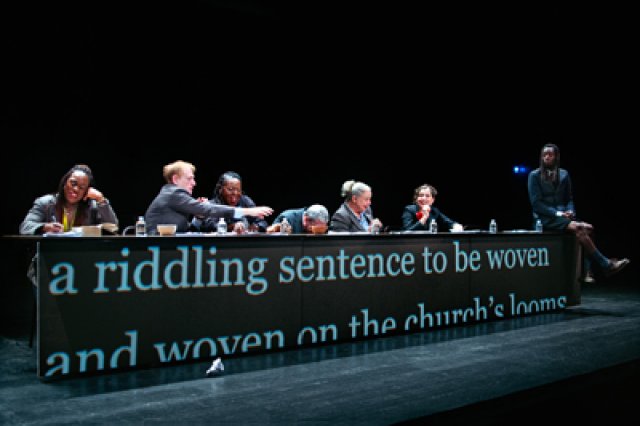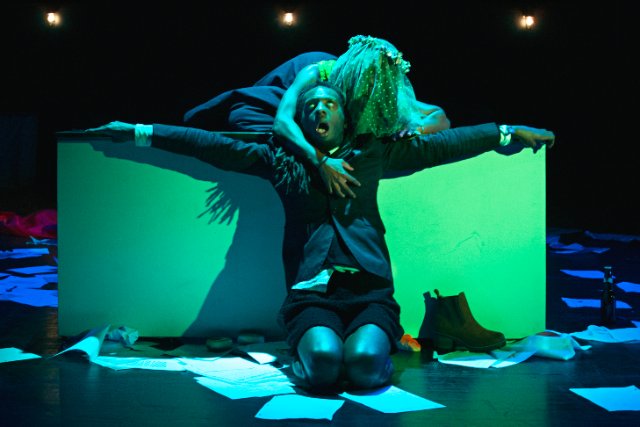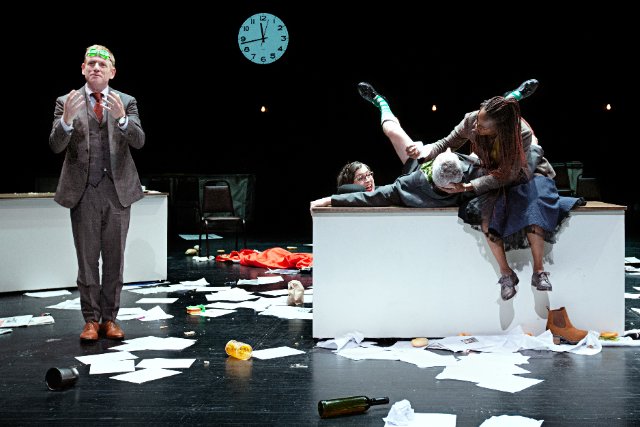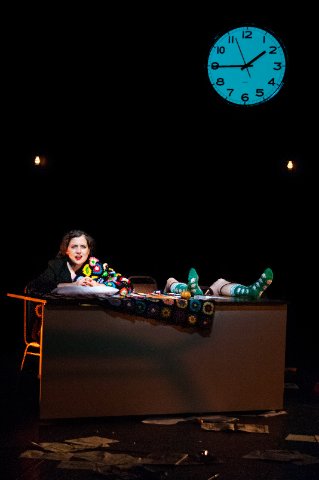Elevator Repair Service Creates a New Ulysses
Summerscape at Bard Presents Staged Novel
By: Susan Hall - Jul 15, 2024
Elevator Repair Service, an innovative theater producing group, presented a staged version of James Joyce’s Ulysses in the Luma Theater at the Fisher Center as part of Bard’s Summerscape 2024 which commissioned the work.
The producing group is clear about their intent: to ‘stage’ the work, not dramatize it. They speak about the challenges as forms clash. Humor erupts as words are spoken, not simply read. Committed to using only the words of the author of a book, their ‘Gatz’ based on F. Scott Fitzgerald’s The Great Gatsby, became a marathon, lasting six hours. Joyce’s work has been cut to two hours and forty minutes. The language, strong and memorable, captures the spirit of Joyce’s wandering Irish Jew and also Ulysses returning to his Penelope at the end of the day.
The Joseph Strick film of 1967 cut the work to two hours. It is set in the actual Dublin locations mentioned in the book, but it is not June 16, 1904, but rather contemporary 1967. Yet Joyce’s spirit is captured, as it is in this 2024 pared-down stage version.
The set is a long conference table behind which the actors sit. We do not at first see that Stephen Daedelus (Christopher-Rashee Stevenson) is wearing shorts or later, exactly what sex acts Molly and her gigolo are performing.
Actors move to the front of the stage. Blazes Boylan, the musical theater producer played by Scott Sheperd, taps his way around the city and finally into the bed of Bloom’s wife Molly. Vin Knight is the happily cuckolded Bloom, who comfortably takes on his feminine part wearing a skirt and also lying on the delivery table in a dream, delivering eight babies. At the time Joyce wrote, one of the characteristics attributed to Jews was feminization–not a compliment. In 1920, when Joyce wrote, his view of the importance of anti-Semitism in the 20th century was prescient.
As the work progresses, the banquet table divides into three parts. A rush of language is projected about the stage, indicating passages of the book not to be heard. They ran in full on a screen at the back of the theater. One audience member craned his neck to view the language. It might have worked better on a screen as we faced forward. Gesture was so handsome and apt that one wished that the director had simply left the work as spoken words and gestures. Paper planes and then papers littering the set distracted rather than enhanced.
Maggie Hoffman as Molly gave us a recessive version of the final soliloquy, choosing not to compete with the lascivious Siobahn McKenna, but instead fading back into the stage to leave us looking at the soles of her husband’s feet.
Yet this “day in the life of...” (and night too) was thoroughly engaging. Joyce and Virginia Woolf, both born in 1882, introduced the form into literature. It is rare that adapting their works to another form enhances them. Philip Glass’s Dalloway music and this production of Ulysses surely do.
Gatz returns to the Public Theater in New York this November.




